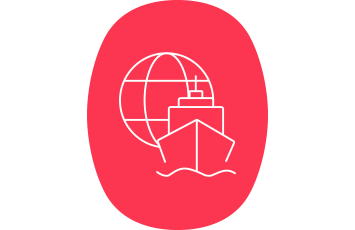Class & statutory
MSC 100 - 3 TO 7 NOVEMBER 2018 MAJOR OUTCOMES OF THE 100TH SESSION OF THE IMO MARITIME SAFETY COMMITTEE
-
ConventionIACS URIACS UIIBC CodeMARPOL Annex VI Air PollutionMODU CodePOLAR Code International code of safety for ships operating in polar watersResolution A.744(18) Inspection of Bulk Carriers and Oil TankersSOLAS CH I General ProvisionsSOLAS CH II-1 Machinery, Electricity, StabilitySOLAS CH II-2 FireSOLAS CH III Life-Saving AppliancesSOLAS CH IV RadiocommunicationsSOLAS CH VII Dangerous GoodsSPS Code Special Purpose ShipsSTCW Crew & Watchkeeping
-
FlagALL FLAGS
-
Ship typeAll Sea going Ship types
MSC 100 - 3 TO 7 NOVEMBER 2018 MAJOR OUTCOMES OF THE 100TH SESSION OF THE IMO MARITIME SAFETY COMMITTEE
Summary Description :
MSC 100 :
-
approved the framework for the regulatory scoping exercise, including the plan of work and procedures, for Maritime autonomous surface vessels (MASS);
-
confirmed that the whole process of the initial verification audit of the 12 IACS member ROs had been successfully completed ;
-
decided to hold the adoption of the draft amendments to the 2011 ESP Code in abeyance and invited IACS to work together with the Secretariat intersessionally to prepare a revised set of draft amendments to the 2011 ESP Code. In parallel, the consolidated version of the 2019 draft ESP Code is expected to be finalized by SDC 6 for approval at MSC 101 (item 3) ;
MSC 100 also approved some highly awaited circulars: :
-
MSC.1/Circ.1430/Rev.1 on Revised guidelines for the design and approval of fixed water-based fire-fighting systems for ro-ro spaces and special category spaces ;
-
MSC.1/Circ on Interim guidelines on the application of high manganese austenitic steel for cryogenic service.
MARINE & OFFSHORE DIVISION MANAGEMENT
L-C&R
The 100th session of the Maritime Safety Committee was held at IMO Headquarters from 3 to 7 December 2018
Please find attached the repoprt of this session.
MSC 100 adopted :
-
amendments to the SPS Code incorporating the amendments previously adopted by circular MSC/Circ.739 and resolution MSC.183(79), and the consequential amendment to the Record of Equipment (item 3).
MSC 100 also adopted the following resolutions :
-
Res. MSC.(100) – Revised guidelines for verification of conformity with goal-based ship construction standards for bulk carriers and oil tankers (item 6) ;
-
Res. MSC.(100) on Amendments to sections B-V/a, B-V/b, B-V/c, B-V/d, B-V/e, B-V/f and B-V/g of the STCW Code (item 10).
MSC 100 approved :
-
MSC.1/Circ.1430/Rev.1 on Revised guidelines for the design and approval of fixed water-based fire-fighting systems for ro-ro spaces and special category spaces (item 9);
-
MSC 1/Circ. Interim guidelines for development and application of IMO goal-based standards safety level approach (GBS-SLA) (item 6);
-
MSC.1/Circ.1582/Rev.1 on Revised unified interpretations of chapter 15 of the FSS Code (item 9);
-
MSC.1/Circ. on Unified interpretation of paragraph 4.4.8.1 of the LSA Code (item 9);
-
MSC.1/Circ on Interim guidelines on the application of high manganese austenitic steel for cryogenic service (item 11) ;
-
MSC.1/Circ on Interim guidance for conducting the refined MHB (CR) corrosivity test (item 11).
MSC 100 also approved :
-
draft amendment to paragraph 6.1.1.3 of the LSA Code (item 9) ;
-
draft amendments to the IBC Code and to the BCH Code (item 8) ;
-
amendment of the Generic guidelines for developing IMO goal-based standards (MSC.1/Circ.1394/Rev.1) (item 6) ;
-
draft amendments to paragraph 2.2 of chapter 15 of the FSS Code (item 9) ;
-
draft amendments to the Records of Equipment, Forms C, E and P of SOLAS Convention (item 9) ;
-
the amendments to parts A and A-1 of the IGF Code (item 11).
MSC 100 :
-
approved the framework for the regulatory scoping exercise, including the plan of work and procedures, for Maritime autonomous surface vessels (MASS) (item 5) ;
-
confirmed that the whole process of the initial verification audit of the 12 IACS member ROs had been successfully completed (item 6) ;
-
decided to hold the adoption of the draft amendments to the 2011 ESP Code in abeyance and invited IACS to work together with the Secretariat intersessionally to prepare a revised set of draft amendments to the 2011 ESP Code. In parallel, the consolidated version of the 2019 draft ESP Code is expected to be finalized by SDC 6 for approval at MSC 101 (item 3) ;
-
agreed to a trial for an independent assessment of the IACS Quality System Certification Scheme (QSCS) (item 19).
Item 3 - Consideration and adoption of amendments to mandatory instruments
Proposed amendments to the 2011 ESP Code
MSC 99 had approved draft amendments to the 2011 ESP Code with a view to adoption at this session.
It was proposed to :
-
correct minor editorials
-
align paragraphs and sections of the 2011 ESP Code containing mandatory requirements with the mandatory language used in IACS Unified Requirement (URs) Z10 series;
-
delete the footnote to the title of annex 13 to part A of annex B and amend its language accordingly, replacing the word "should" with the phrase "is to" or "are to"
-
amend the second sentence of paragraph 2 of annex 12 to part B of annex B and appendix 3 of this annex with non-mandatory language, correcting paragraph 873 and removing paragraphs 879 to 893 of the annex to the draft MSC resolution
MSC 100 has decided to hold the adoption of the draft amendments to the 2011 ESP Code in abeyance and invited IACS to work together with the Secretariat intersessionally to prepare a revised set of draft amendments to the 2011 ESP Code.
The consolidated version of the 2019 draft ESP Code is expected to be finalized by SDC 6 for approval at MSC 101, with a view to adoption by A 31 as the 2019 ESP Code, superseding the 2011 ESP Code, as amended.
An associated SOLAS amendment would be prepared by SDC 6 to make the 2019 ESP Code mandatory, for submission to MSC 101 for approval with a view to subsequent adoption at MSC 102, following the adoption of the 2019 ESP Code by A 31.
Draft amendments to the SPS Code
MSC 99 had adopted amendments to SOLAS chapter IV and the appendix (Certificates) by resolution MSC.436(99) and an associated amendment to the 2008 SPS Code by resolution MSC.445(99).
MSC 99 had requested the Secretariat to prepare a draft MSC resolution on amendments to the SPS Code (resolution A.534(13)), incorporating the amendments adopted by MSC/Circ.739 and resolution MSC.183(79).
MSC 100 has adopted amendments to the SPS Code incorporating the amendments previously adopted by circular MSC/Circ.739 and resolution MSC.183(79), and the consequential amendment to the Record of Equipment.
The said amendments should become effective on 1 January 2020, in conjunction with the entry into force of the amendments to SOLAS chapter IV and the appendix (Certificates) adopted by resolution MSC.436(99).
Amendments to the Code of safety for special purpose ships (SPS code) (Resolution A.534(13))
The existing text of section 1.2 is amended to read as follows:
"Except as provided in 8.3, the Code applies to every new special purpose ship of not less than 500 gross tonnage. The Administration may also apply these provisions as far as reasonable and practicable to special purpose ships of less than 500 gross tonnage."
The existing paragraph 1.3.4 is amended to read as follows:
"1.3.4 Except as provided in 8.3, 'special purpose ship' means a mechanically self-propelled ship which, by reason of its function, carries on board more than 12 special personnel including passengers. Special purpose ships to which this Code applies include the following types:
.1 ships engaged in research, expeditions and survey;
.2 ships for training of marine personnel;
.3 whale and fish factory ships not engaged in catching;
.4 ships processing other living resources of the sea, not engaged in catching;
.5 other ships with design features and modes of operation similar to ships referred to in .1 to .4 which in the opinion of the Administration may be referred to this group."
The existing chapter 8 is replaced with the following new chapter 8:
"CHAPTER 8 – LIFE-SAVING APPLIANCES"
8.1 The requirements of chapter III of the 1974 SOLAS Convention, as amended, should be applied with the specifications given hereunder.
8.2 A special purpose ship carrying more than 50 special personnel should comply with the requirements contained in chapter III of the 1974 SOLAS Convention for passenger ships engaged in international voyages which are not short international voyages.
(…)
8.4 A special purpose ship carrying not more than 50 special personnel should comply with the requirements contained in chapter III of the 1974 SOLAS Convention for cargo ships other than tankers. Such ships may however carry life-saving appliances in accordance with 8.2, if they comply with the subdivision requ rements for ships carrying more than 50 special personnel.
8.5 Regulations 2, 18.3.3, 20.1.2, 20.1.3, 26.1.6, 26.1.7, 45 and 46 of chapter III of the 1974 SOLAS Convention are not applicable to special purpose ships.
Item 5 - Regulatory scoping exercise for the use of maritime autonomous surface ships (MASS)
MSC 99 endorsed a framework for the scoping exercise and established a Correspondence Group on MASS. It had also agreed to the development of interim guidelines for MASS trials.
Framework for the regulatory scoping exercise
MSC 100 approved the framework for the regulatory scoping exercise, including the plan of work and procedures.
The aim of the regulatory scoping exercise is to determine how safe, secure and environmentally sound Maritime Autonomous Surface Ships (MASS) operations might be addressed in IMO instruments.
To facilitate the process of the regulatory scoping exercise, the degrees of autonomy are organized as follows:
Degree one: Ship with automated processes and decision support: Seafarers are on board to operate and control shipboard systems and functions. Some operations may be automated and at times be unsupervised but with seafarers on board ready to take control.
Degree two: Remotely controlled ship with seafarers on board: The ship is controlled and operated from another location. Seafarers are available on board to take control and to operate the shipboard systems and functions.
Degree three: Remotely controlled ship without seafarers on board: The ship is controlled and operated from another location. There are no seafarers on board.
Degree four: Fully autonomous ship: The operating system of the ship is able to make decisions and determine actions by itself.
The list of mandatory instruments related to maritime safety and security to be considered as part of the regulatory scoping exercise is as follows :
-
COLREG 1972 – International Regulations for Preventing Collisions at Sea, 1972
-
CSC 1972 – International Convention for Safe Containers (CSC), 1972, as amended
-
LL 1966 – International Convention on Load Lines, 1966
-
LL PROT 1988 – Protocol of 1988 relating to the International Convention on Load Lines, 1966
-
SAR 1979 – International Convention on Maritime Search and Rescue, 1979
-
SOLAS 1974 – International Convention for the Safety of Life at Sea, 1974, as amended
-
SOLAS AGR 1996 – Agreement concerning specific stability requirements for ro-ro passenger ships
-
SOLAS PROT 1978 – Protocol of 1978 relating to the International Convention for the Safety of Life at Sea, 1974
-
SOLAS PROT 1988 – Protocol of 1988 relating to the International Convention for the Safety of Life at Sea, 1974
-
SPACE STP 1973 – Protocol on Space Requirements for Special Trade Passenger Ships, 1973
-
STCW 1978 – International Convention on Standards of Training, Certification and Watchkeeping for Seafarers, 1978, as amended
-
STCW-F 1995 – International Convention on Standards of Training, Certification and Watchkeeping for Fishing Vessel Personnel, 1995
-
STP 1971 – Special Trade Passenger Ships Agreement, 1971
-
TONNAGE 1969 – International Convention on Tonnage Measurement of Ships, 1969
As a first step, the regulatory scoping exercise will identify provisions in IMO instruments which, as currently drafted:
-
A apply to MASS and prevent MASS operations; or
-
B apply to MASS and do not prevent MASS operations and require no actions; or
-
C apply to MASS and do not prevent MASS operations but may need to be amended or clarified, and/or may contain gaps; or
-
D have no application to MASS operations.
Once the first step is completed, a second step will be conducted to analyse and determine the most appropriate way of addressing MASS operations :
-
I equivalences as provided for by the instruments or developing interpretations; and/or
-
II amending existing instruments; and/or
-
III developing new instruments; or
-
IV none of the above as a result of the analysis.
Degrees of autonomy
Some delegations indicated their support for a more detailed description of degrees of autonomy, but MSC 99 considered that this should be conducted after the scoping exercise.
Having noted the development of international standards for terminology and concepts for ship autonomy by ISO, MSC 100 invited interested Member States to participate in the work of ISO on this matter. However, MSC 100 has estimated that IMO should be the leading organization in defining the different degrees of autonomy and related terminology.
Instruments and level of detail of their analysis
The analysis of regulations/rules during the scoping exercise should be high level, i.e. at the level of rules and regulations, and that the review of mandatory instruments should be the priority.
Methodology
MSC 100 agreed with the amendments proposed by the Correspondence Group to the "Methodology" section and made further modifications to the text in order to clarify that the second step (i.e. the analysis to determine the most appropriate way of addressing MASS operations) should only be conducted after completing the first step (i.e. the identification of rules/regulations in IMO instruments that apply or not to MASS).
Working arrangements and procedures
A web platform will be developed for the regulatory scoping exercise.
The initial review of instruments could be conducted simultaneously by different volunteering Member States, in collaboration with interested international organizations.
Concerning the completion of the first step before moving into the second step, MSC 100 agreed that either the Committee or a group authorized by the Committee should review the results of the first step and decide whether the second step could commence or if further work would be required before commencing the second step.
Due to the time required to conduct the initial review of instruments and the deadlines for submissions of documents to MSC 101 (i.e. April 2019), it would not be possible to consider the results of the first step at MSC 101.
Consequently, MSC 100 agreed to the holding of an intersessional MSC working group from 2 to 6 September 2019. the terms of reference of the intersessional MSC working group could be prepared at MSC 101, which should include the relevant authorization to review the results of the first step and to decide whether the second step could commence or not, on behalf of the Committee. By referring this work to an intersessional meeting, MSC 101 would be able to focus on the development of guidelines on MASS trials.
MSC 100 agreed that the initial analysis should be high level instead of regulation-by-regulation.
MSC 100 has invited Member States willing to volunteer to lead or support the initial review of specific instruments to inform the Secretariat (MASS@imo.org) no later than 31 December 2018.
A summary with recommended actions should be prepared by each volunteering Member State and submitted to MSC 102 for final consideration with a view of completion of the regulatory scoping exercise at that session. In that view, a table containing information on Member States that had volunteered to lead or support the initial review of different instruments has been prepared.
Interim guidelines for MASS trials
MSC 99 invited interested Member States and international organizations to, inter alia, submit proposals to MSC 100 related to the development of interim guidelines for MASS trials, with the aim of establishing a harmonized international framework to test MASS operations.
MASS operations might be considered as a disruptive development, where technology precedes regulation. There is therefore a need to take a precautionary approach by, inter alia, developing guidelines for MASS trials.
Work is already in progress, and both Finland and Norway have established areas for the testing of MASS operations. In this context, Norway has taken an initiative to establish an informal correspondence group to draft interim guidelines for MASS trials.
Suggestion was made that IMO should provide similar guidance to allow tests of MASS in international voyages and to ensure that MASS is at least as safe as manned ships, with full consideration of the safety risks and human element.
MSC 100 agreed to the following provisional principles:
-
the Guidelines should be developed as a single document addressing Administrations, the industry and other relevant stakeholders;
-
the Guidelines should be not too technical or prescriptive;
-
the Guidelines should be goal-based, describing functions and goals to be achieved;
-
the Guidelines should include reporting to the relevant coastal State(s) on the trial(s) to be conducted, so as to enable the dissemination of information on the trials to all ships in the specified area;
-
the Guidelines should provide that MASS trials are to be in line with mandatory instruments.
Item 6 - Goal-based new ship construction standards (GBS)
Initial GBS Verification Audit of Türk Loydu
Türk Loydu had requested the Secretary-General, on 26 March 2018, to conduct an initial verification of its ship construction rules for bulk carriers and oil tankers against the Tier I goals and Tier II functional requirements of the Goal-based ship construction standards for bulk carriers and oil tankers (resolution MSC.287(87))
The Audit Team had identified three non-conformities related to Functional Requirements 3 (Structural strength), 10 (Design transparency) and one of general nature, as well as nine observations.
The Audit Team had concluded that Türk Loydu's rules conformed to the Standards, provided that the non-conformities were rectified and the observations addressed.
MSC 100 has concurred with this view.
MSC 100 has noted the observations of the Audit Team and, in particular, concerns raised that the documentation package submitted by Türk Loydu was almost identical to that submitted by IACS members. The Audit Team was of the view that this "mirroring" might defeat the spirit of the GBS and the verification of the Tier II functional requirements and constituted a lack of incentive to improve ROs' rules after a successful initial verification audit.
Hence, amendments to the draft Revised GBS Verification Guidelines (MSC 99/WP.8) to address cases where ship construction rules of ROs and Administrations incorporated publicly available third-party rules already approved by the Committee as GBS-conforming, have been drafted.
MSC 100 agreed to new text in paragraph 10.8 of the draft Revised guidelines, which required an RO or Administration, when using third-party rules, to ensure that procedures were in place as part of the internal quality management system for the regular review and continuous improvement of the submitted package. A Submitter who used third-party rules was ultimately responsible for its own rule content and the appropriateness of using the third-party rules and was therefore required to ensure that the submitted rules for GBS verification met the goals and functional requirements under the GBS.
GBS maintenance of verification audit of the 12 IACS ROs
MSC 96 had confirmed that the 12 IACS member ROs had demonstrated that their rules conformed to the Standards. MSC 98 had established that all non-conformities had been rectified. MSC 98 had subsequently confirmed that the whole process of the initial verification audit of the 12 IACS member ROs had been successfully completed.
in order to establish continued conformity with the Standards in accordance with the GBS Guidelines, maintenance of verification audits should be conducted on an annual basis. MSC 100 had for its consideration the final report of the GBS maintenance of verification audit of the 12 ROs that had requested an audit in order to establish conformity of their rule sets with the Standards, in accordance with the GBS Guidelines.
the Audit Team had identified two IACS CSR-related non-conformities: the first relating to Functional Requirement 4 (Fatigue life) and the second relating to Functional Requirement 11 (Construction quality procedures), as well as four observations, but had, nevertheless, concluded that all IACS member ROs' rules, except for DNV-GL, conformed to the Standards, provided that the non-conformities were rectified and the observations addressed.
The Auditors had some difficulties in identifying what exactly constituted a rule change. Hence, a new definition of "rule change" was agreed so as to provide the necessary clarification :
“Rule change means any text change to an existing rule or rule set already verified as conforming to the Standards”
Draft amendments to the GBS Verification Guidelines
MSC 100 has adopted Res. MSC.(100) – Revised guidelines for verification of conformity with goal-based ship construction standards for bulk carriers and oil tankers.
MSC 99 approved, in principle, the draft MSC resolution on Revised guidelines for verification of conformity with goal-based ship construction standards for bulk carriers and oil tankers, with a view to subsequent adoption at MSC 100; and agreed that it should take effect one year after adoption.
MSC 99 agreed with the view of the GBS Working Group that the Revised GBS Guidelines would require periodical review, taking into account the experience gained with the auditing process over time.
MSC 99 had approved, in principle, draft Revised GBS Verification Guidelines with a view to subsequent adoption at this session and taking effect one year after adoption.
Draft Interim guidelines for development and application of IMO goal-based standards safety level approach (GBS-SLA)
MSC 100 has approved MSC 1/Circ. Interim guidelines for development and application of IMO goal-based standards safety level approach (GBS-SLA).
MSC 96 coupled the conformity with the Goal-based Standards to the successful resolution of non-conformities by requiring ROs to submit new requests for a verification audit on the rectification of non-conformities. In order for non-conformities and their rectification to be considered on a regular basis, GBS non-conformities verification audits should be formalized within the GBS Guidelines.
MSC 98 had made further progress on the development of the draft Interim guidelines by considering how to generically describe the process of developing IMO instruments using risk-based methods. MSC 99 had approved, in principle, the draft Interim guidelines for consideration at MSC 100 with a view to approval
Experience gained in the application of the Generic guidelines for developing IMO goal-based standards
MSC 100 has agreed to amend the Generic guidelines for developing IMO goal-based standards (MSC.1/Circ.1394/Rev.1).
MSC 97 agreed that SLA is an application of risk-based concepts in order to determine the safety level of regulations, with a view to developing or changing international regulations, within or outside the GBS approach and endorsed a work plan for the development of interim SLA guidelines.
MSC 99 approved, in principle, the draft Interim guidelines for development and application of the IMO goal-based standards safety level approach (Interim guidelines).
SSE 5 had established a working group to develop draft goals and functional requirements for onboard lifting appliances and anchor handling winches (OLAW), taking into account the Generic guidelines for developing IMO goal-based standards (MSC.1/Circ.1394/Rev.1), and agreed to forward the experience gained with the application of the Generic guidelines to the Committee for consideration
MSC 100 has noted the difficulties encountered by the Organization when developing other goal-based instruments, such as the Polar Code, and agreed that when developing a goal-based regulation for new or novel subjects that mainly required high-level directions (e.g. MASS), the goal-based approach was easier to achieve than for highly technical existing regulations.
Work on goal-based rules should start by setting the goals first before identifying hazards and subsequent functional requirements, followed by the drafting of prescriptive regulations. A complete revision of the existing text should not be attempted and MSC 100 invited Member States and international organizations to submit proposals in this respect under the existing output "Verified goal-based new ship construction standards for tankers and bulk carriers"
Item 7 - Safety measures for non-SOLAS ships operating in polar waters
Canada and New Zealand have proposed amendments to SOLAS chapter XIV to mandate the Polar Code, part I-A, chapter 10, for all ships operating in polar waters to which SOLAS chapter IV applies, and chapters 9 and 11, for all ships operating in polar waters to which SOLAS chapter V applies, while maintaining the application of provisions of SOLAS regulation V/1.4.
The co-sponsors supported the following : points
.1 an important mitigating measure to avoid accidents at sea is to ensure that a vessel is equipped with sufficient and functioning navigational equipment and systems and that voyages are well planned; and
.2 well-functioning means of communication is also an important factor for safe navigation.
They suggested that an improvement in safety can be delivered by the application of the Polar Code, part I-A, chapters 9 (Safety of navigation), 10 (Communication) and 11 (Voyage planning), together with the required definitions, performance standards and operational assessment referred to in sections 1.2, 1.4 and 1.5 respectively of the Polar Code, part I-A, chapter 1 (General), as additional requirements to SOLAS chapters IV and V, as appropriate.
Canada also suggested that certain methodologies for determining a ship's operational limitations in ice be made mandatory for non-SOLAS ships operating in polar waters; and that the carriage of the Polar Water Operational Manual (PWOM) (or equivalent) be made mandatory for such ships, together with the required definitions, performance standards and operational assessments.
Wider scope of application of the Polar Code
The co-sponsors proposed that the application of part I-A of the Polar Code be limited to chapters 9, 10 and 11, and to the relevant elements of the introduction and chapter 1 (i.e. definitions) as necessary to ensure effective implementation.
SOLAS regulation V/1.4 enable an Administration to consider the extent to which regulations 15, 16, 17, 18, 19, 20, 21, 22, 23, 24, 25, 26, 27 and 28 do not apply to:
.1 ships below 150 gross tonnage engaged on any voyage;
.2 ships below 500 gross tonnage not engaged on international voyages; and
.3 fishing vessels.
The intent is to make chapter 9 of the Polar Code mandatory as an "add-on" to the requirements of SOLAS chapter V. the co-sponsors propose that chapter 9 of the Polar Code be subject to the same discretionary application as provided in SOLAS regulation V/1.4. To aid Administrations in applying the intent of SOLAS regulation V/1.4 consistently when applying the requirements of chapter 9 of the Polar Code, it is additionally proposed that the guidance, at annex 2, be inserted as an amendment to the Polar Code part I-B.
MSC 100 had divergent views on widening the mandatory application of the Polar Code and some delegations expressed that any proposal on mandatory regulations would at this stage be premature.
No consensus on the content of the draft was achieved and consideration of the draft amendments to regulation XIV/3 could not be finalized.
Some progress was made on a preliminary draft text for a new paragraph in SOLAS regulation XIV/3 relating to the Polar Code, part I-A, chapters 9 (Safety of navigation) and 11 (Voyage planning).
At the opposite, the proposal on the Polar Code, part I-A, chapter 10 (Communication) had not been taken into account,
Methodologies for determining a ship's operational capabilities in ice and the mandatory carriage of a Polar Code's Polar Water Operational Manual (PWOM)
Canada considers that ships should have on board specific procedures to be followed in normal operations and in the event that conditions are encountered which exceed the ship's specific capabilities and limitations.
Canada recognizes that guidance set out in the contents of the Polar Code's Polar Water Operational Manual (PWOM) need not be applicable to every non-SOLAS ship. Nevertheless,.
It is Canada's view that an improvement to safety can be delivered to non-SOLAS ships in making mandatory requirements to have on board a PWOM (or equivalent), through the application of chapter 11 (Voyage Planning), together with the required definitions, performance standards and operational assessments referred to in section 1.2, 1.4 and 1.5 of chapter 1 (General) of part I-A, as additional requirements to SOLAS chapter V.
A case can be made to make mandatory the carriage of a PWOM (or elements of it) and, therefore, the operational assessment required by section 1.5 for non-SOLAS ships, linking this requirement to proper voyage planning required by SOLAS regulation V/34.
MSC 100 has noted the importance of proper voyage planning, observing that it was mandatory to all ships pursuant to SOLAS regulation V/34
It was also noted that though it was important that ships operating in polar waters had sufficient and relevant information to assess their capabilities and limitation in ice, smaller vessels were less likely to transit ice-infested waters. It was therefore agreed that more precise proposals justifying the need for a PWOM (or equivalent) and methodologies for determining a ship's operational capabilities in ice would be required in order to consider the issue further.
Development of interim measures and generic guidance for non-SOLAS ships
MSC 100 agreed, that as an interim measure, an appropriate resolution to urge Member States to take action, for example, to apply relevant provisions of the Polar Code, could be developed.
Item 8 - Pollution prevention and response
Draft amendments to the IBC and BCH Codes
PPR 5 had finalized draft amendments to the International Code for the Construction and
Equipment of Ships Carrying Dangerous Chemicals in Bulk (IBC Code) (PPR 5/24/Add.1) mainly
consisting of the following:
.1 draft new paragraph 15.15 (Hydrogen sulphide (H2S) detection equipment for bulk
liquids);
.2 draft new paragraph 16.2.7, referring to the draft new prewash requirements in
MARPOL Annex II (see also paragraph 11.[…]);
.3 the full text of draft revised chapters 17 (Summary of minimum requirements), 18 (List of products to which the Code does not apply), 19 (Index of Products Carried in Bulk) and 21 (Criteria for assigning carriage requirements for products subject to the IBC Code).
MEPC 73 had approved draft amendments with a view to adoption at MEPC 74.
Correspondingly, MSC 100 approved the draft amendments to the IBC Code with a view to adoption at MSC 101.
MEPC 73 had approved draft consequential amendments to the BCH Code with a view to adoption at MEPC 74, in conjunction with the adoption of the corresponding amendments to the IBC Code.
MSC 100 concurrently approved the draft amendments with a view to adoption at MSC 101
Safety implications associated with the use of low-sulphur fuel oil
The Intersessional Meeting on Consistent implementation of regulation 14.1.3 of MARPOL Annex VI (ISWG-AP 1) had taken place from 9 to 13 July 2018. the part of the report of ISWG-AP 1 related to safety issues that might be identified with regard to low-sulphur fuel oil would be reported to MSC 100 for consideration.
MEPC 73 had adopted, by resolution MEPC.305(73), amendments to MARPOL Annex VI concerning the prohibition of the carriage of non-compliant fuel oil for combustion purposes for propulsion or operation on board a ship.
MEPC 73 had also approved :
-
MEPC.1/Circ.878 on Guidance on the development of a ship implementation plan for the consistent implementation of the 0.50% sulphur limit under MARPOL Annex VI
-
MEPC.1/Circ.875/Add.1 on Guidance on best practice for fuel oil suppliers for assuring the quality of fuel oil delivered to ships.
PPR 5 had agreed to a work plan to complete the output on "Consistent implementation of regulation 14.1.3 of MARPOL Annex VI" and the outline of the draft Guidelines for consistent implementation of regulation 14.1.3 of MARPOL Annex VI.
MSC 100 had for its consideration proposals to address the safety concerns identified by ISWG-AP 1.
The Committee acknowledged that urgent actions were required to address the safety implications associated with the use of low-sulphur fuel oil, but also long-term solutions to enhance the safety of ships relating to the use of fuel oil.
MSC 100 has agreed to include in its biennial agenda an output on "Development of further measures to enhance the safety of ships relating to the use of fuel oil", with a target completion year of 2021 and an associated scope of work as follows:
"Based on the review of existing safety provisions for fuel oil and information concerning the safety implications associated with the use of fuel oil, develop further measures to enhance the safety of ships relating to the use of fuel oil."
Register of bunker suppliers -
It was proposed that IMO considers amending the current requirement to maintain a register of bunker suppliers, replacing it with a requirement stating that parties to MARPOL Annex VI should establish bunker supplier licensing schemes.
MSC 100 agreed that the proposed bunker supplier licensing schemes should be addressed by MEPC.
GISIS module for fuel oil safety matters
MSC 101 supported the enhancement of GISIS to provide greater granularity in fuel safety reports and invited MEPC 74 to advise MSC 101 on improvements to GISIS in this regard, e.g. update of existing GISIS modules or creation of a new module.
Hence, GISIS should be improved to provide greater granularity in fuel quality and safety reports which are uploaded onto the system by creating a new GISIS module for fuel oil safety matters.
MSC circular on ensuring fuel suppliers deliver compliant fuels
As the above proposals would take time to implement and would not achieve immediate safety, it was proposed that, in the interim, MSC adopts an MSC circular recommending that all Member States should take appropriate action to ensure that fuel suppliers under their jurisdiction deliver fuels that comply with the agreed specifications and applicable statutory requirements outlined in the Guidance on Best Practice for Fuel Oil Purchasers/Users for Assuring the Quality of Fuel Oil Used on Board Ships (MEPC.1/Circ.875).
Delegates broadly supported the development of a draft circular recommending that all Member States took appropriate action to ensure that fuel suppliers under their jurisdiction delivered compliant fuels.
PPR 6 has been instructed to develop a joint MSC-MEPC circular addressing the delivery of compliant fuels by suppliers, with a view to approval by MEPC 74 and MSC 101.
Item 9 - Ship systems and equipment
Amendments to paragraph 6.1.1.3 of the LSA Code with a view to adoption at MSC 101,
MSC 100 has approved the draft amendment to paragraph 6.1.1.3 of the LSA Code, with a view to adoption at MSC 101 and an entry into force in 1 January 2024.
SSE 5 agreed to the draft amendment to paragraph 6.1.1.3 of the LSA Code for submission to MSC 100 for approval and subsequent adoption. The text of the draft amendment (SSE 5/17, annex 1) reads as follows:
"6.1.1.3 A launching appliance shall not depend on any means other than gravity or stored mechanical power which is independent of the ship's power supplies to launch the survival craft or rescue boat it serves in the fully loaded and equipped condition and also in the light condition.
On cargo ships equipped with a rescue boat which is not one of the ship's survival craft, having a mass not more than 700 kg in fully equipped condition, with engine, but without the crew, the launching appliance of the boat does not need to be fitted with stored mechanical power. Manual hoisting from the stowed position and turning out to the embarkation position shall be possible by one person. The force on the crank handle shall not exceed 160 N at the maximum crank radius of 350 mm. Means shall be provided for bringing the rescue boat against the ship's side and holding it alongside so that persons can be safely embarked."
At MSC 98, the view was expressed that the operating crew would be required to board the rescue boat after it had been swung outboard, which introduced a new safety hazard, established a different safety regime for crews on cargo ships from those on passenger ships and was incompatible with the general requirement for safe launching with the operating crew on board, as required in paragraph 6.1.1.1.2 of the LSA Code.
Notwithstanding that a similar expression is found in SOLAS regulation III/11.8, IACS has identified a need to clarify what is acceptable in the context of the draft amended paragraph 6.1.1.3 of the LSA Code, with a view to facilitating its global and consistent application.
Japan and IACS also considered that the application of the aforementioned draft amendment should only apply to the equipment certified on or after the date the amendment will enter into force.
The corresponding amendments were not agreed and these topics were referred to SDC 6.
Amendments to the Revised guidelines for the design and approval of fixed water-based fire-fighting systems for ro-ro spaces and special category spaces (MSC.1/Circ.1430)
MSC 100 approved MSC.1/Circ.1430/Rev.1 on Revised guidelines for the design and approval of fixed water-based fire-fighting systems for ro-ro spaces and special category spaces.
The main amendment is the addition of the following paragraph :
MSC.1/Circ.1430 superseded MSC.1/Circ.1272, except that fire and component tests previously conducted in accordance with MSC.1/Circ.1272, remain valid for the approval of new systems. Existing fixed fire-extinguishing systems for special category spaces approved and installed based on resolution A.123(V), MSC.1/Circ.1272 and MSC.1/Circ.1430 installed before [date] should be permitted to remain in service as long as they are serviceable.
MSC 100 agreed to amend the application date of the draft Revised guidelines to "1 January 2021".
Scope of application of new requirements for onboard lifting appliances and anchor handling winches (OLAW)
MSC 100 had for its consideration how the scope of application of the new requirements for onboard lifting appliances and anchor handling winches should be specified.
SSE 5 considered the scope of application of the new requirements for onboard lifting appliances and anchor handling winches (OLAW); in particular, the three options:
.1 a "list of inclusions";
.2 a "list of inclusions with some exclusions"; or
.3 a "list of exclusions".
SSE previously endorsed the view that the scope should not be limited to cargo-handling lifting appliances
Noting the opinion that a list of inclusions with some exclusions could provide a better coverage of the application, MSC 100 instructed SSE 6 to further consider which lifting appliances and winches should be indicated in the draft amendments.
It was agreed that the following principles should be applied when further developing the scope of application:
.1 the approach to establishing scope of application should be consistent with the approach in SOLAS regulation I/2 and I/3,
.2 the list of inclusions should be limited to the high risk appliances where the need for regulation has been demonstrated and should replace the current draft definition of lifting appliance; and
.3 any exclusions should be limited to sub-groups within the scope of application only.
The Plenary agreed that offshore construction ships should be excluded.
Draft amendments to paragraph 2.2 of chapter 15 of the FSS Code
MSC 100 approved draft amendments to paragraph 2.2 of chapter 15 of the FSS Code, aiming to provide a unified understanding of arrangements for inert gas lines and related indicators and alarms for monitoring the pressure of the inert gas mains, with a view to adoption at MSC 101.
These amendments, if adopted, should enter into force on 1 January 2024.
IACS proposed to develop a unified interpretation clarifying the term "forward of" as used in chapter 15 (Inert gas systems) of the FSS Code. It suggested that SSE considers the benefits of developing a longer term solution, which would be to prepare draft amendments to the Code to replace the term "forward of" with the unambiguous wording "downstream of" and "upstream of," as appropriate.
SSE 5 agreed that the words "forward of", which are used in paragraphs 2.2.3.2.1, 2.2.3.2.6 and 2.2.4.2.1 of chapter 15 of the FSS Code, should read "downstream of". This issue will be addressed by MSC 101.
As an interim solution, before the entry into force of the aforementioned amendments, SSE 5 agreed revising the Unified interpretations of chapter 15 of the FSS Code (MSC.1/Circ.1582), by adding the following new interpretation:
"Paragraphs 15.2.2.3.2.1, 15.2.2.3.2.6 and 15.2.2.4.2.1
Where the words "forward of" are used, it should be interpreted to mean "downstream of"."
MSC 100 has approved MSC.1/Circ.1582/Rev.1 on Revised unified interpretations of chapter 15 of the FSS Code as an interim solution prior to the entry into force of the draft amendments to paragraph 2.2 of chapter 15 of the FSS Code
Unified Interpretation of paragraph 4.4.8.1 of the LSA Code
MSC 100 approved MSC.1/Circ. on Unified interpretation of paragraph 4.4.8.1 of the LSA Code.
It is aimed to exempt lifeboats with two independent propulsion systems from being equipped with sufficient buoyant oars and their related items (thole pins, crutches or equivalent arrangements) to make headway in calm seas.
The text of the Unified Interpretation is as follows :
"For a lifeboat equipped with two independent propulsion systems, where the arrangement consists of two separate engines, shaft lines, fuel tanks, piping systems and any other associated ancillaries, paragraph 4.4.8.1 of the LSA Code need not be applied. For all other aspects, the lifeboat should be in full compliance with paragraph 4.4.8 of the LSA Code."
MSC 101 approved the following text replacing the existing paragraph 4.4.8.1 in order to align it with the approved Unified Interpretation, with a view to adoption at MSC 101:
".1 except for a lifeboat equipped with two independent propulsion systems, where the arrangement consists of two separate engines, shaft lines, fuel tanks, piping systems and any other associated ancillaries, and for a free fall lifeboat, sufficient buoyant oars to make headway in calm seas. Thole pins, crutches or equivalent arrangements shall be provided for each oar provided. Thole pins or crutches shall be attached to the boat by lanyards or chains."
Proposed amendments to Records of Equipment (Forms C, E and P of the appendix to the SOLAS Convention)
MSC 100 approved draft amendments to the Records of Equipment, Forms C, E and P, with a view to adoption at MSC 101.
An inconsistency in interpreting item 8.1 on "Rudder, propeller, thrust, pitch and operational mode indicator" in the Records of Equipment, Forms C, E and P was contained in the appendix to the SOLAS Convention.
Item 10 - Human element, training and watchkeeping
Amendments to part B of the STCW Code
MSC 100 has adopted resolution MSC.(100) on Amendments to sections B-V/a, B-V/b, B-V/c, B-V/d, B-V/e, B-V/f and B-V/g of the STCW Code, which are consequential to the adoption of amendments to the 1978 STCW Convention, as amended, and the STCW Code by resolutions MSC.416(97) and MSC.417(97), respectively, relating to the Polar Code.
Item 11 - Carriage of cargoes and containers
Draft amendments to parts A and A-1 of the IGF Code
MSC 100 approved the amendments to parts A and A-1 of the IGF Code, with a view to adoption at MSC 101.
MSC 99 had agreed to hold the approval of draft amendments to parts A and A-1 of the IGF Code in abeyance and instructed CCC 5, taking into account the proposal of the inclusion of an alternative solution to protect against leakage, to reconsider the draft amendments to regulation 9.5.6 and report the outcome to MSC 100.
Paragraph 9.5.1 of part A-1 of the IGF Code has been modified to be applicable only to gaseous fuels and the following new paragraph 9.5.6 has been introduced in order to provide related specific requirements for liquefied fuel pipes:
"9.5.6 Liquefied fuel pipes shall be protected by a secondary enclosure able to contain leakages. If the piping system is in a space that is able to contain leakages of cryogenic liquids, this requirement can be waived.
The secondary enclosure shall be able to withstand the maximum pressure that may build up in the enclosure in case of leakage from the fuel piping. For this purpose, the secondary enclosure may need to be arranged with a pressure relief system that prevents the enclosure from being subjected to pressures above their design pressures."
MSC 100 concurred with the conclusion of CCC 5 that no further changes to regulation 9.5.6 regarding an alternative solution to protect against leakage were needed.
Interim guidelines on the application of high manganese austenitic steel for cryogenic service
MSC 100 approved MSC.1/Circ on Interim guidelines on the application of high manganese austenitic steel for cryogenic service.
A footnote in the IGC and IGF Codes, respectively, containing a reference to the Interim guidelines, will be inserted.
While the application of the Interim guidelines was initially limited to steel plates for the construction of LNG fuel tanks under the provisions of the IGF Code, the scope had been expanded to include also LNG cargo tanks, subject to the IGC Code.
It must be recalled that ISO 21635:2018 (Ships and marine technology – Specification of high manganese austenitic steel used for LNG tanks on board ships) was published in July 2018.
References to this have been included in the draft Interim guidelines where appropriate.
Here is the plan of the draft interim guidelines on the application of high manganese austenitic steel for cryogenic service :
Part I General
1 Scope
2 Application
3 Definitions
Part II Material specifications and testing requirements
4 Material specification
5 Chemical composition
6 Mechanical properties
7 Welding of metallic materials and non-destructive testing
8 Material testing and acceptance criteria
9 Manufacturer approval scheme
Part III Application
10 Design application
11 References
The draft guidelines can be sent upon request.
Interim guidance for conducting the refined MHB (CR) corrosivity test
MSC 100 approved MSC.1/Circ on Interim guidance for conducting the refined MHB (CR) corrosivity test.
Item 17 – Work programme – coming issues
SOLAS requirements for cargo hold high water level detection and alarms
MSC 100 has agreed to the proposal to expand the applicability of the requirements of SOLAS regulation II-1/25 for cargo hold water level detectors by developing a new SOLAS regulation applying to cargo ships with multiple cargo holds.
This task has been assigned to the SDC Sub-Committee.
Revision of ECDIS – Guidance for good practice (MSC.1/Circ.1503/Rev.1)
MSC 100 agreed to revise ECDIS – Guidance for good practice (MSC.1/Circ.1503/Rev.1) with a view to improving the unified implementation of ECDIS type approval when approving ECDIS's software and relevant updates.
Inspection programmes for cargo transport units carrying dangerous goods
MSC 100 agreed to revise the Inspection programmes for cargo transport units carrying dangerous goods (MSC.1/Circ.1442, as amended by MSC.1/Circ.1521), in order to broaden the inspection programmes for cargo transport units (CTUs).
Expansion of existing output proposed by the CCC Sub-Committee
MSC 100 agreed to expand the output on "Suitability of high manganese austenitic steel for cryogenic service and development of any necessary amendments to the IGC and IGF Codes" to include related guidance for approving alternative metallic material for cryogenic service.
Item 19 - Any other business
Trial for an independent assessment of the IACS Quality System Certification Scheme (QSCS)
It has been proposed to establish a fully independent, international quality assessment review body, namely, the International Quality Assessment Review Body (IQARB) for the QSCS, for an initial trial.
The various delegations which spoke welcomed the project favorably and were pleased that the IMO Secretariat is actively participating in this trial. The IMO will host the meetings, but this experiment should not cost the Organization anything. Finally, the MSC is to be kept informed of its results
Proposal for the development of IMO requirements on design, construction and survey of seagoing vessels with Fibre Reinforced Plastic (FRP) hulls and/or FRP structures contributing to global strength
The aim of this proposal from the Russian Federation is to initiate a study related to all issues of Fibre Reinforced Plastic (FRP) material usage in the maritime industry and to consolidate the available experience, as well as to consider a new output for the development of IMO requirements on design, construction and survey of seagoing vessels (including Maritime Autonomous Surface Ships (MASS)) with FRP hulls and/or FRP structures contributing to global strength
The Plenary welcome this proposal and invited Russian federation to make a dedicated submission for a new output.
* * *
Report of the 100th meeting of the IMO MSC Committee
Download








